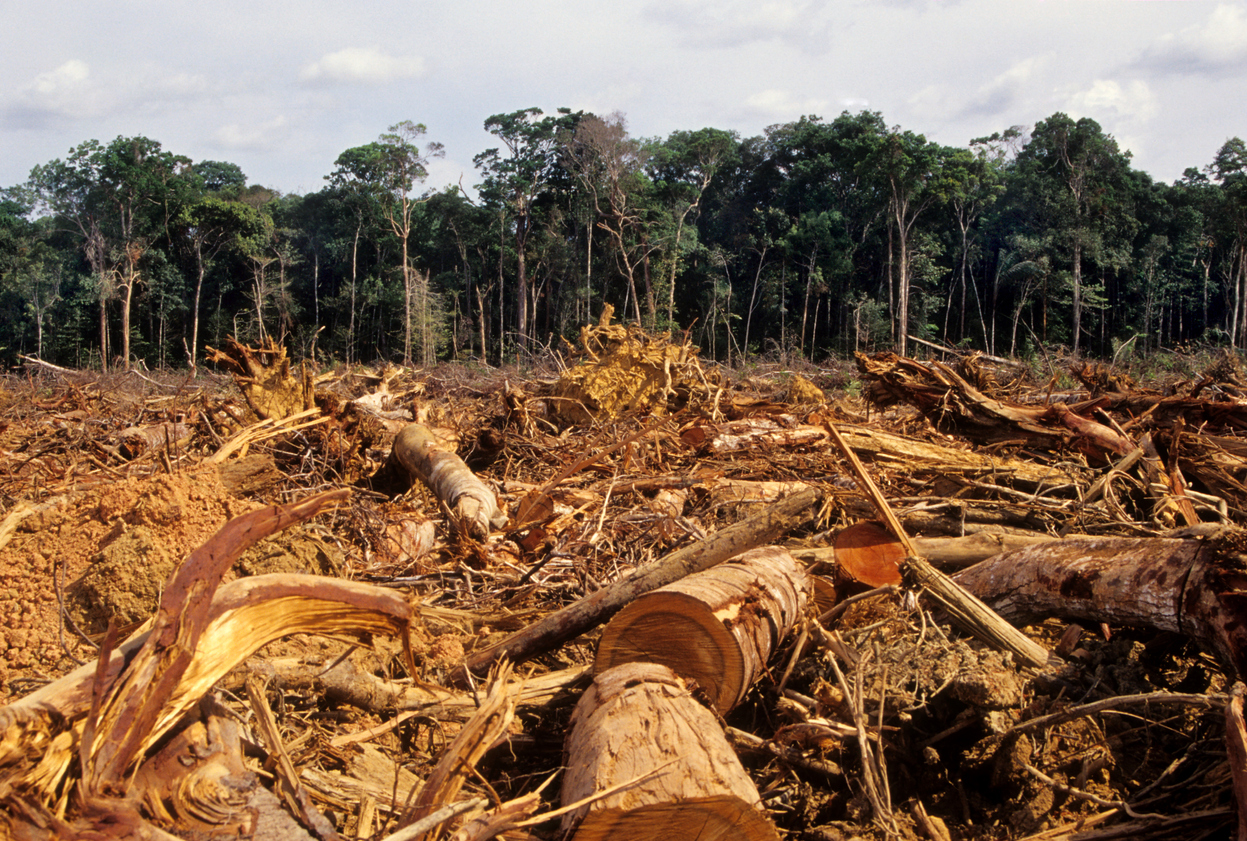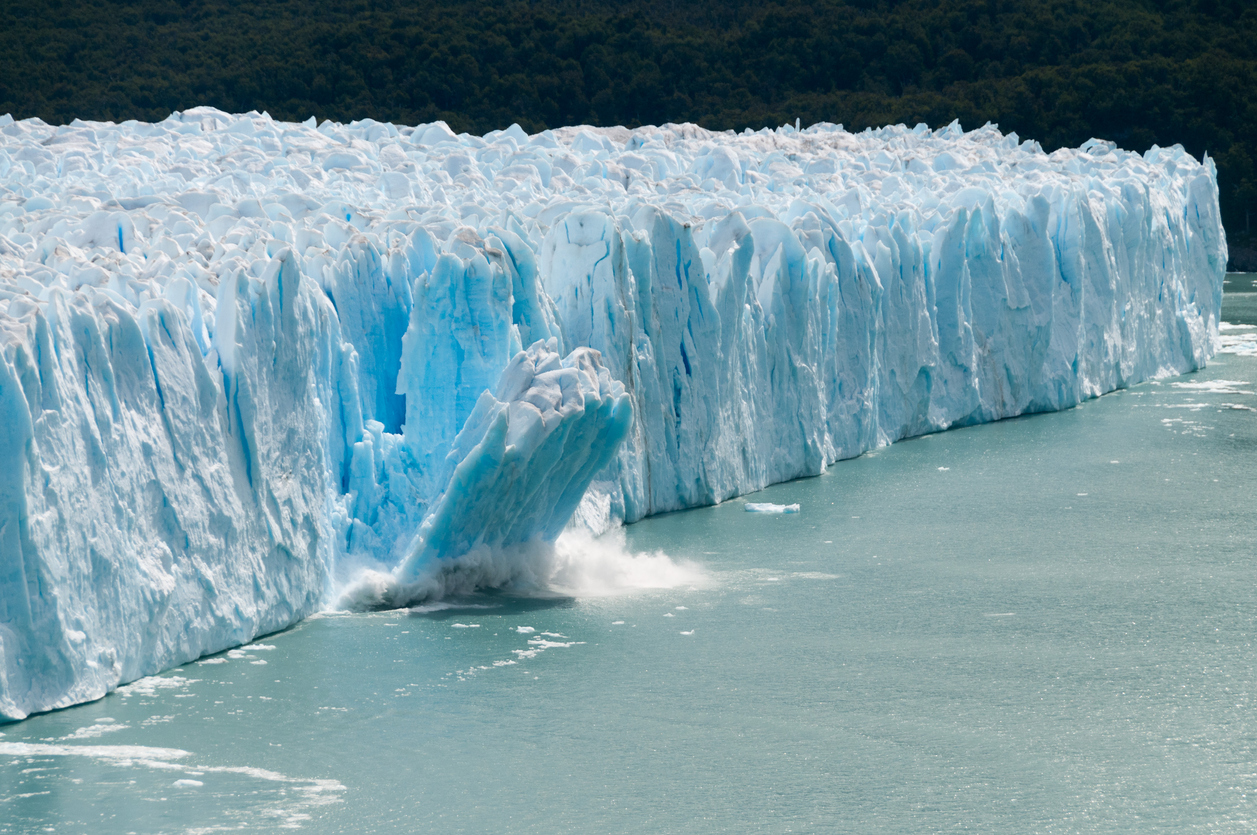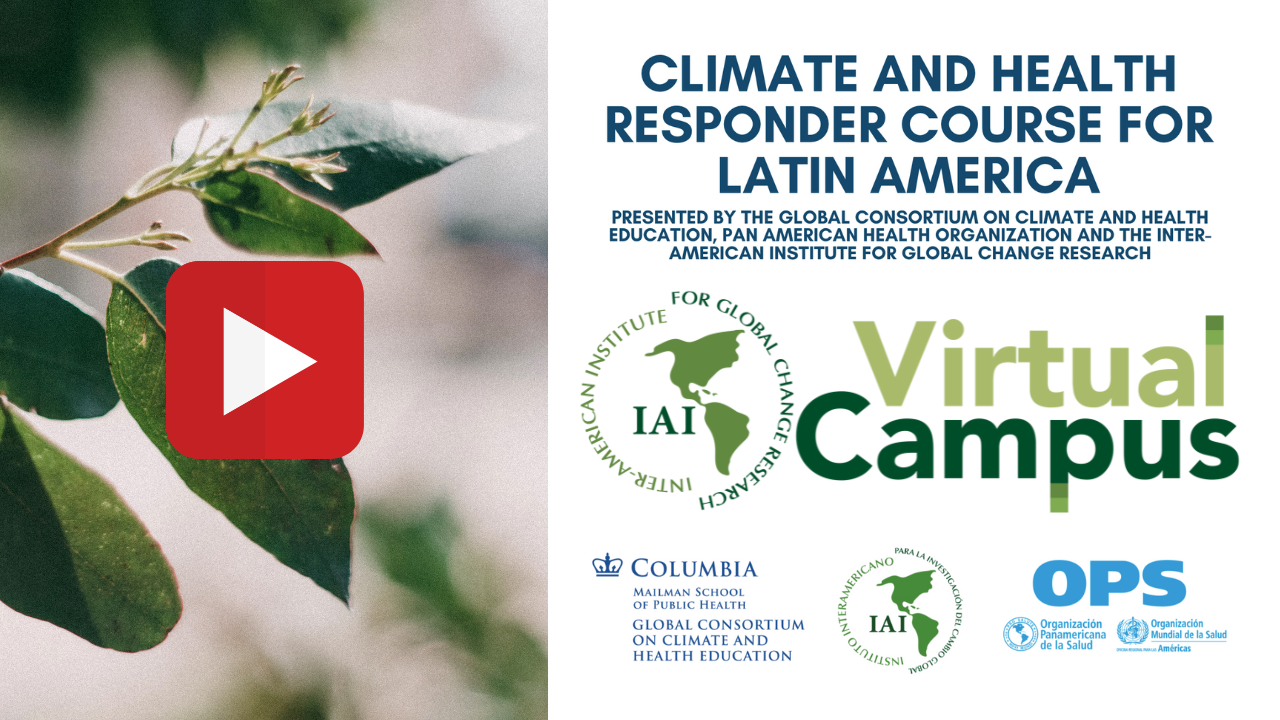CLIMATE AND HEALTH RESPONDER COURSE FOR LATIN AMERICA
The Climate and Health Responder Course for Latin America is a self-paced, open and free course with a certificate organized by the Inter-American Institute for Global Change Research (IAI), the Pan American Health Organization (PAHO), and the Global Consortium on Climate and Health Education (GCCHE) based at Columbia University (USA).
The course aims to engage the public health research and academic communities to facilitate climate and health research used to inform health and policy decisions. This course serves as an introduction to the cutting-edge of climate and health research, explores case studies of successful implementation, and opportunities for engagement.

Climate change is the biggest global health threat of the 21st century, and tackling climate change is one of our greatest opportunities for building and strengthening public health systems. To meet the emerging health needs imposed by climate change, both academic and research communities are urgently needed to further our understanding of the health impacts of climate change and adaptation options including: monitoring, projections, early-warning systems, and epidemiological surveillance of health outcomes. Simultaneously, close cooperation is needed with policy makers and health decision makers to ensure new knowledge can be translated into practice.

TARGET AUDIENCE:
Academics, health researchers, environmental researchers, health professionals, health leaders, climate leaders, students and funders.
COURSE STRUCTURE:
The course consists of didactic sessions with international experts supported by slides.
COURSE OBJECTIVES:
- Equip public health researchers with a knowledge base regarding the impacts of climate change on health
- Enable researchers to understand current methodologies and approaches used to establish connections between climate change and health impacts, assess attribution, access meteorological and climate data collection, develop monitoring systems and projections, undertake epidemiological surveillance, develop early warning systems, and create mechanisms to monitor and evaluate climate change interventions.
- Enable participants to engage in research that informs health policy action and implementation
SESSION TOPICS:

Session 1 - Climate Change and Health
Dr. Gilma Mantilla, Pontifical Javeriana University
Video Recording | Slide Deck | Recommended Reading
Session 2 - Climate Vulnerability and Risk
Dr. Mercy Borbor-Córdova, Escuela Superior Politécnica del Litoral
Video Recording | Slide Deck | Recommended Reading
Session 3 - Degraded Air Quality and Wildfires
Dr. Liana Anderson, National Center for Monitoring and Early Warning of Natural Disasters, Brazil
Dr. Luis Jorge Hernandez Florez, University of the Andes Faculty of Medicine
Video Recording | Slide Deck | Case Study | Recommended Reading
Session 4 -Temperature Extremes and Climate Change
Dr. Ramón García Trabanino, Board of the Institute of Continuing Education of the Latin American Society of Nephrology and Hypertension (SLANH)
Esp. Francisco Chesini, Ministry of Health of Argentina
Video Recording | Slide Deck | Case Study | Recommended Reading
Session 5 - El niño/La niña Effects/extra-tropical cyclones
Dr. Juan José Nieto, International Center for Research on the El Niño Phenomenon
Dr. Carolina Portaluppi-Castro, Casa Grande University, UNDP Consultant
Video Recording | Slide Deck | Case Study | Recommended Reading
Session 6 - Food and Water Safety and Security
Dr. Walter E. Baethgen, International Research Institute, The Earth Institute at Columbia University
Dr. Vivian Camacho, General Director of the Health Ministry, Bolivia
Video Recording | Slide Deck | Case Study | Recommended Reading
Session 7 - Vector-borne and Zoonotic Diseases
Dr. Elizabet Lilia Estallo, Institute of Biological and Technological Research
Dr. María Soledad López, Climate Change and Variability Studies Center (FICH)
Video Recording | Slide Deck | Case Study | Recommended Reading
Session 8 - Data Collection and Surveillance
Dr. Rachel Lowe, London School of Hygiene & Tropical Medicine
Dr. Christovam Barcellos, Oswaldo Cruz Foundation (Fiocruz) Brazil
Video Recording | Slide Deck | Case Study | Recommended Reading
Session 9 - Climate Adaptation and Mitigation (Co-Benefits)
Dr. Carmen Ciganda, Ministry of Public Health Uruguay
Dr. David Rojas-Rueda, Colorado State University Environmental and Radiological Health Sciences
Video Recording | Slide Deck | Case Study | Recommended Reading
Session 10 - Regional Climate Change Guidance (public policy)
Dr. Daniel Buss, Pan American Health Organization
Dr. Stella Hartinger, Cayetano Heredia University; Comprehensive Development, Environment and Health Unit
Video Recording | Slide Deck | Case Study | Recommended Reading

